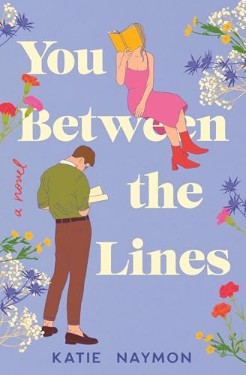WHEN WILL LANGFORD DRAGS HIS pen over each line of my poem, slowly, as if to not miss a single word, I feel the movement scraped over my legs.
He’s the kind of student Mrs. Lincoln’s creative writing elective was made for. The class is a big deal to get into. You had to apply with a short story or three poems, and there’s only room for ten students, to create an intimate feel. As one of the only two juniors selected, I feel a need to prove why I’m here.
But Will doesn’t. He’s a senior, the president of the Rowan School Literary Club, the editor in chief of Expressions, our student literary journal, and next semester, he’s graduating and going to Middlebury to study English. Will wants to be a writer when he grows up, and if you know him, you know that.
I want to be a writer, too. In middle school, I won all sorts of local writing competitions. I scribbled short stories under a timer in drafty auditoriums and felt like a pop star when my name was called hours later, accepting gold plastic and certificates like they were Grammys. I liked the way they glinted along my bookshelf’s edges, obfuscating the actual books behind them. I wasn’t the most popular or the prettiest, but I did write Cuyahoga County’s third-best short story for a seventh grader.
Writing’s my escape. As an only child, I never grew up playing house or doctor or any of the other games siblings play together. Instead, I made things up, just for me. And now, while other kids are first-kissing and kicking soccer balls over summer break, I go to creative writing camps, exchanging poems with braces-clad boys who look at me like I’m the kind of girl who knows how beer tastes.
In a poem, I can be whoever I want to be, even if it’s just for six stanzas.
So yes, I want to be a writer. But not the annoying kind. It feels like most writers are very, very annoying—particularly the population of straight, white literary men. The kind that everyone hates but craves approval from anyway. You know the type. The guys with three names—David Foster Wallace, Jonathan Safran Foer. I haven’t read anything by them and I won’t. Maybe because I’m in high school and, quite frankly, have better things to do than read Infinite Jest.
But it’s not just the contemporary guys. I SparkNoted my way through Ernest Hemingway in ninth-grade English. I skimmed The Sound and the Fury and suffered through Madame Bovary (in French, no less). I love reading, I swear. But I’ve never been able to sink my teeth into these lauded literary classics—the ones written by men, the ones set in wartime, with stream of consciousness as their stylistic mode of choice, the poverty and depression of men as their focus. Give me Brontë, Austen, Lorde. John Steinbeck, though? Ralph Waldo Emerson? I’m good.
But Will is different, I’m sure of it. On the first day of this workshop, when Mrs. Lincoln asked who our favorite writer was as an icebreaker, Will said the poet Mary Oliver. Everyone else said Sophocles, Ayn Rand, Charles Dickens. I was going to say Erica Go, a young poet who plays with pop culture, but I got intimidated and lied, saying F. Scott Fitzgerald instead. (I did dress up as Daisy for Halloween, but that’s only because I look amazing in a flapper dress.)
That’s the problem with me. I constantly read the room and cater my movements, words, thoughts, which-comma-goes-where to other people.
